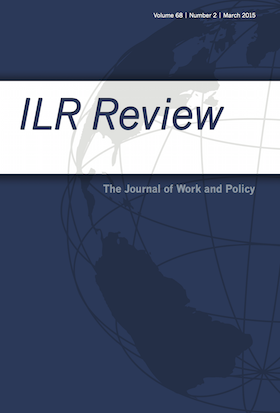
Works Councils and Establishment Productivity
Declining union density in many industrialized countries increases interest in alternative forms of employee representation, such as works councils. The German works council is one of the most powerful forms of worker representation in developed countries, but little is known of its causal effect on productivity. The author used a large linked employer-employee panel data set to examine this issue. Comparing firms with and without a works council, the author finds that establishments with a works council are on average 6.4% more productive; but he also presents evidence that this figure underestimates the true productivity effect of works councils.




